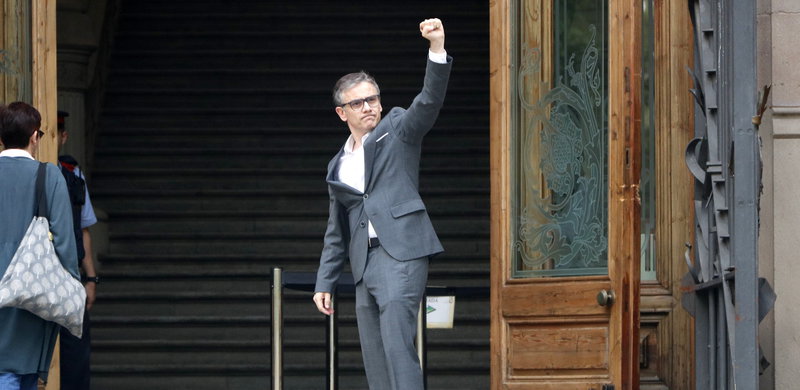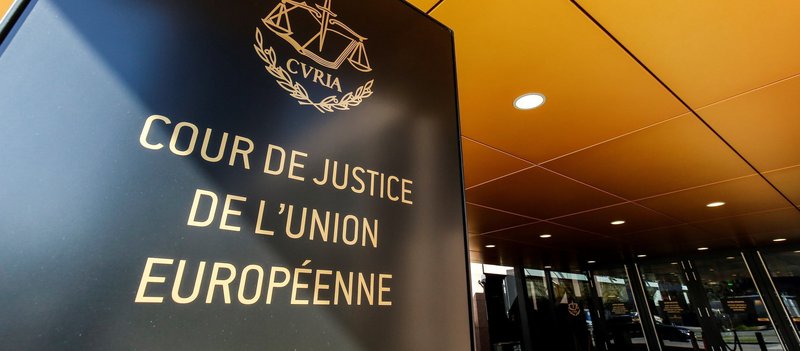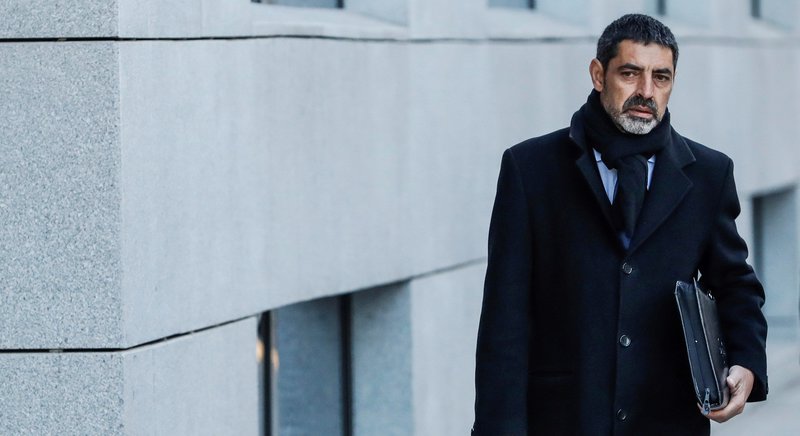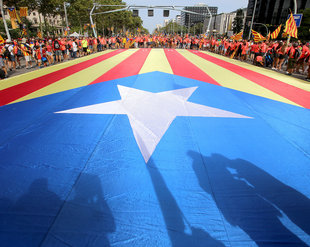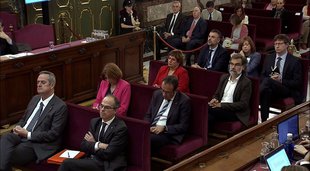Whither the independence issue?
With summer over, a new political term begins with the independence issue set to top the agenda in Catalonia. The bid to split from Spain, with a unilateral referendum and a declaration of independence in the Catalan parliament, took place in autumn 2017, but the political conflict is far from resolved. In fact, the rest of the year will see a series of developments that will take the matter to the next level, as the independence camp continues to push for a binding referendum on self-determination.
The political year in Catalonia will begin how it ended, with the dozen pro-independence leaders tried by the Supreme Court for their role in the bid to split from Spain two years ago. After four months of testimony in the high court earlier in the year, a verdict on the 12 – who between them are accused of rebellion, sedition and misuse of public funds, and face prison sentences of up to 25 years – is due in late September or early October, unless the Spanish Socialist Party fails to form a government and a general election is called for November.
Whatever verdict the Supreme Court judges come to, there will be a strong reaction in Catalonia. With the political parties in favour of a referendum seeking a united response to the verdict, there will likely be new attempts to pressure Madrid into agreeing to a vote on self-determination, while demonstrations and general strikes, and even a new Catalan election, are among the other likely future scenarios.
Yet, before that will be the annual mass gathering of independence supporters on September 11, Catalonia’s National Day. Since 2012, the Diada as it is known has become a high point of the year for those in favour of Catalan self-determination, attracting hundreds of thousands of people. This year’s Diada demonstration has the motto Objectiu independència (Objective independence). The organisers of the event, the Catalan National Assembly (ANC), have prioritised the idea of a united front over personalities and purposefully not invited any political representatives to the space reserved for VIPs. With an eye on international media coverage, for this year’s demonstration the ANC has devised a protest in which some of Barcelona’s main thoroughfares will fill with people, forming a huge star shape that will be seen from the air, and converging on Espanya square. “We want to show that different roads lead to a meeting point where we can come together in a shared objective,” ANC president, Elisenda Paluzie, described it.
Yet the national day protest and the Supreme Court verdict are only the start of a series of developments likely to go on for months. Among them are a number of legal battles at home and abroad that will shape how the political conflict unfolds. In fact, many in the independence camp believe the issue is more likely to be resolved internationally, and there are already several fronts open, with more yet to come.
The Supreme Court verdict is set to end up in the European Court of Human Rights in Strasbourg, with the defences arguing that anything other than acquittal amounts to an abuse of their clients’ human rights. Meanwhile, the jailed Oriol Junqueras and the exiled Carles Puigdemont and Toni Comín, who were prevented from taking up their seats in the European Parliament, have appealed to the Court of Justice of the European Union. Then there are the cases before the United Nations, after the UN Working Group on Arbitrary Detention earlier in the year called for the release of some of the imprisoned leaders, citing breaches of human rights. The UN is also looking at the cases of activist leader turned politician, Jordi Sánchez, and former Catalan president, Carles Puigdemont, who lodged appeals after the Spanish authorities prevented both of them – the former in prison and the latter threatened with arrest – from taking up the post of president after the Catalan parliament elected them to head the government.
Nor are these the only proceedings, as five former members of the Catalan parliament bureau and a former MP are charged with disobedience for allowing laws enabling Catalan lawmakers to vote on independence. Meanwhile, a Barcelona court is prosecuting some 30 people for organising the 2017 referendum, including government officials and employees, civil servants, media workers, technicians and business people. The charges range from misuse of public funds, disobedience and deceit to revealing secrets and perversion of justice.
Then, in January, the trial of the Catalan police chief at the time of the bid, Josep Lluís Trapero, and three other former police heads is due to begin in Spain’s National Court. The Mossos d’Esquadra police are accused of aiding the independence bid and Trapero, another Mossos head, and a former interior ministry official are charged with rebellion, with another former police official accused of sedition.
Not even the current Catalan president, Quim Torra, is immune, as he faces being barred from office in the coming months over charges of disobedience levelled against him for his refusal to remove signs supporting the jailed Catalan leaders from the front of the government HQ.



